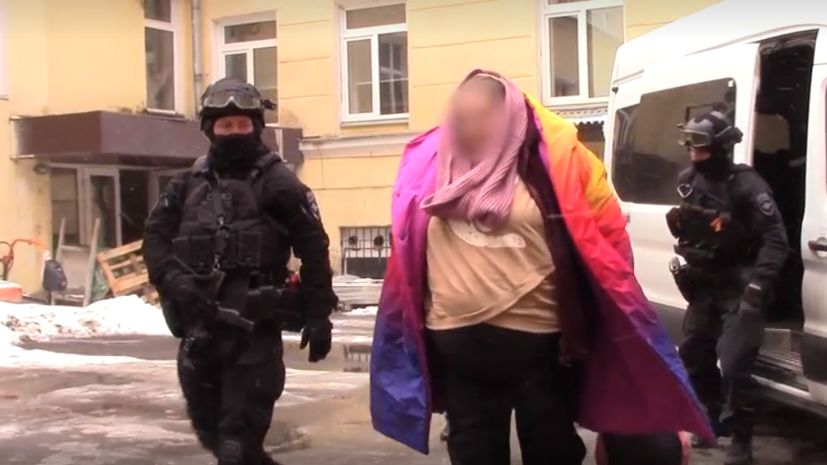A resident of Moscow was detained for treason in connection with the provision of financial assistance to the Armed Forces of Ukraine.
This was reported in the Center for Public Relations of the FSB of Russia.
“The Federal Security Service of the Russian Federation, in cooperation with the Ministry of Internal Affairs of Russia, stopped the illegal activities of a resident of the city of Moscow, involved in committing high treason in the form of financial assistance to the Armed Forces of Ukraine in activities directed against the security of the Russian Federation, a crime under Art.
275 of the Criminal Code of Russia," the message says.
The suspect was detained while trying to leave the Russian Federation.
It is noted that the criminal case against the girl is being processed by investigators of the Investigation Department of the FSB of Russia.
Urgent investigative actions are being carried out, as well as operational-search measures aimed at establishing all the circumstances of the criminal case, including the detention of accomplices.
At the same time, the Lefortovsky District Court of Moscow in relation to the detainee chose a measure of restraint in the form of detention for a period of two months.
The FSB also recalled that the sanction under the article “Treason” provides for punishment in the form of imprisonment for a term of 12 to 20 years with a fine of up to 500 thousand rubles or the income of the convicted person for a period of up to three years.
A resident of Moscow was detained for treason in connection with the provision of financial assistance to the Armed Forces of Ukraine
Earlier this week, a local resident was detained in Komsomolsk-on-Amur under a similar article.
He contacted via the Internet with a representative of the Main Intelligence Directorate of the Ministry of Defense of Ukraine.
The man intended to give him information regarding the military facilities of the RF Ministry of Defense stationed on the territory of the Khabarovsk Territory.
As indicated by the FSB, the information could be used by the enemy to carry out sabotage and terrorist acts, strikes with high-precision weapons and unmanned aerial vehicles in the areas of loading, maintenance and along the routes of military equipment.
In addition, on March 4, the court took into custody for two months a resident of Barnaul, who had previously been detained for cooperation with a certain Ukrainian organization.
This was reported in the press service of the FSB department for the Altai Territory.
“At the request of the investigator of the Federal Security Service of Russia for the Altai Territory, the Altai Territory Court chose a preventive measure in the form of detention of a previously detained Russian citizen born in 1978, who established and maintained a cooperation relationship on a confidential basis with a representative of a foreign organization in order to assist in activities knowingly directed against Russia's security," TASS quoted the message as saying.
The detainee faces up to eight years in prison, as she is charged under Art.
275.1 of the Criminal Code of Russia "Cooperation on a confidential basis with a foreign state, international or foreign organization."
Crimes of an extremist nature
In Russia, in the first month of 2023, compared to the same period of the previous year, the number of crimes of an extremist nature has significantly increased.
It is reported by RIA Novosti with reference to the data of the Ministry of Internal Affairs of the Russian Federation.
“In January 2023, 157 crimes of a terrorist nature (+12.1%) and 134 crimes of an extremist nature (+157.7%) were registered,” the document says.
It is specified that in just the first month of the year, about 151.1 thousand crimes were registered, which is 1.1% more than in the same period of 2022.
At the same time, the growth of recorded crimes occurred in 36 subjects of the Russian Federation.
The day before, Russian President Vladimir Putin discussed with the permanent members of the Security Council of the Russian Federation measures to protect facilities run by law enforcement agencies from terrorism.

